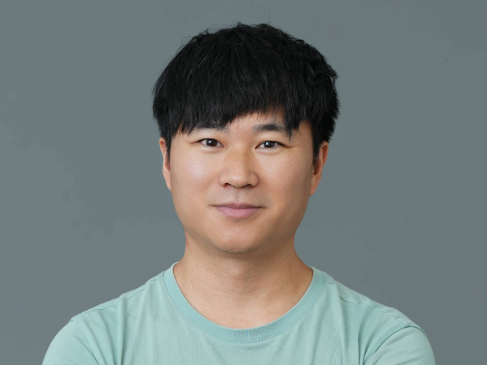Bin Zhang
Assistant Professor of Computational Biology
Research Interests
Professor Zhang focuses on addressing the challenge of discovering novel biological patterns from large-scale omics data by leveraging artificial intelligence (AI) and advanced computational methods. His research aims to develop innovative omics analysis tools and construct comprehensive databases and atlases to uncover gene regulatory mechanisms associated with diseases such as cancer and genetic disorders, with a particular emphasis on RNA regulation. Email

- Postdoctoral Fellow, Computational Bioscience Research Center, KAUST, Kingdom of Saudi Arabia
- Research Fellow, Cancer Science Institute of Singapore, National University of Singapore, Singapore
- Ph.D. in Computational Biology, CAS-MPG Partner Institute of Computational Biology, Shanghai Institutes for Biological Sciences, Chinese Academy of Sciences, China
- Joint Ph.D. student, Berlin Institute for Medical Systems Biology, Max-Delbrück-Center for Molecular Medicine, Germany
- B.Eng. in Bioinformatics, College of Life Science and Technology, Huazhong University of Science and Technology, China
- Constructing the first comprehensive resource of RNA splicing events within untranslated regions (UTRs), leading to the discovery of a novel regulatory mechanism where pan-cancer widespread 3’ UTR splicing promotes oncogene expression and tumorigenesis.
- Building the first full-length transcriptomic atlas of colorectal cancer using single-cell long-read sequencing, and proposing a new tumor immunology concept that aberrant RNA processing generates shared neoantigens across multiple tumors.
- Developing a series of omics analysis tools, including the first fully automated AI agent for multi-omics analysis.
Professor Zhang has published over a dozen papers as first/co-first or corresponding author in leading journals such as Nature Cell Biology, Nature Genetics, Cell Genomics, Genome Research, and Advanced Science.
- Zhou, J.*, Zhang, B.*, Chen, X., Li, H., Xu, X., Chen, S., ... & Gao, X. (2024). An AI Agent for Fully Automated Multi-omic Analyses. Advanced Science, 2024, 2407094.
- Li, Z.*, Zhang, B.*,#, Chan, J. J.*, Tabatabaeian, H., Tong, Q. Y., Chew, X. H., ... & Tay, Y. (2024). An isoform-resolution transcriptomic atlas of colorectal cancer from long-read single-cell sequencing. Cell Genomics, 4(9), 100641.
- Zhang, B., & Gao, X. (2023). Deciphering DNA variant-associated aberrant splicing with the aid of RNA sequencing. Nature genetics, 1-2.
- Long, Y.*, Zhang, B.*,#, Tian, S.*, Chan, J. J., Zhou, J., Li, Z., ... & Gao, X. (2023). Accurate transcriptome-wide identification and quantification of alternative polyadenylation from RNA-seq data with APAIQ. Genome Research, 33(4), 644-657.
- Chan, J. J.*, Zhang, B.*, Chew, X. H., Salhi, A., Kwok, Z. H., Lim, C. Y., ... & Tay, Y. (2022). Pan-cancer pervasive upregulation of 3′ UTR splicing drives tumourigenesis. Nature Cell Biology, 24(6), 928-939.
- Tian, S.*, Zhang, B.*, He, Y., Sun, Z., Li, J., Li, Y., ... & Chen, W. (2022). CRISPR-iPAS: a novel dCAS13-based method for alternative polyadenylation interference. Nucleic Acids Research, 50(5), e26.
- Xiao, M. S.*, Zhang, B.*, Li, Y. S., Gao, Q., Sun, W., & Chen, W. (2016). Global analysis of regulatory divergence in the evolution of mouse alternative polyadenylation. Molecular systems biology, 12(12), 890.